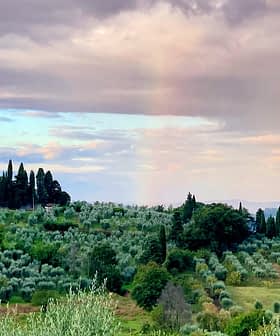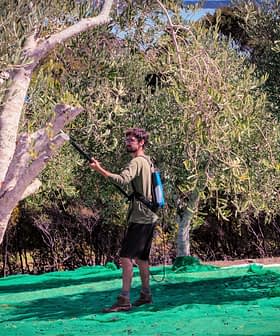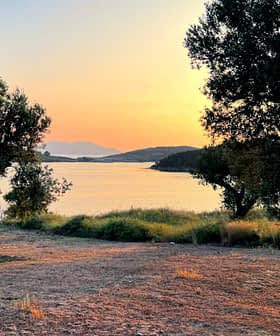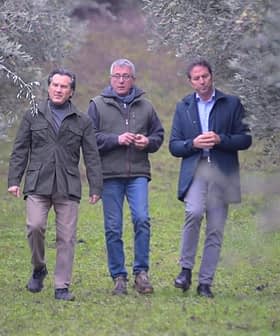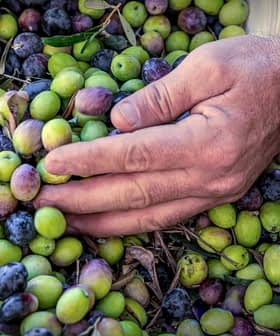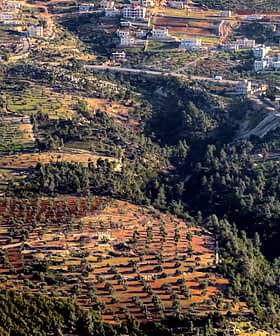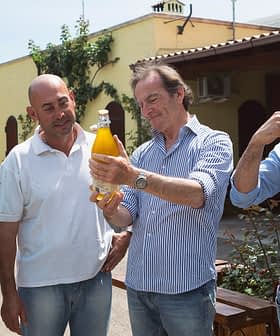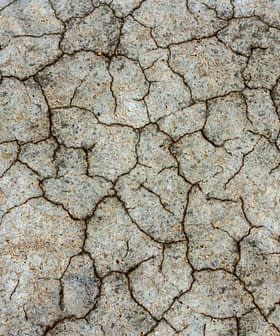Native Varieties and Centenarian Trees: The Winning Formula for Olivian Groves
After a harvest full of twists and turns, the Peloponnese producer achieved award-winning quality by relying on traditional and modern practices.
 Native varieties paired with modern techniques help Olivian Groves achieve award-winning results. (Photo: Olivian Groves)
Native varieties paired with modern techniques help Olivian Groves achieve award-winning results. (Photo: Olivian Groves) Olivian Groves, founded in 2019, combines traditional olive cultivation with a modern sustainability outlook, resulting in award-winning olive oils. The company cultivates Manaki and Koroneiki varieties in the Peloponnese peninsula, focusing on quality, sustainability, and supporting the local community.
Combining traditional olive cultivation with a modern social and environmental sustainability outlook has yielded award-winning results for the producers behind Olivian Groves.
Founded in 2019, the company planted two traditional Greek varieties, Manaki and Koroneiki, in the fertile Peloponnese peninsula in southern Greece.
We decided to invest in selected traditional orchards, where with proper interventions, we have made our business economically, environmentally and socially sustainable.
From the outset, producers have embraced the region’s long history of olive cultivation and the unique terroir provided by the mountainous landscape.
While the rugged terrain increases labor costs tremendously, the company believes this is compensated by the unique organoleptic characteristics provided to its extra virgin olive oils by the centenarian trees, landscape and climate.
See Also:Producer Profiles“Olive tree cultivation in Greece dates back thousands of years and has been passed down from generation to generation, following the same procedures,” said Mary Savvas, Olivian Groves’ general manager.
“Manual work was predominantly due to the mountainous nature of the groves,” she added. “But quality-wise, this is the big advantage of the Greek olive groves. Most are traditional, with mature trees, sometimes hundreds of years old. They represent the vast majority – more than 80 percent – of the trees that produce extra virgin olive oil.”
Olivian Groves cultivates around 40,000 olive trees on two farms in Argolida and Messenia, having introduced modern cultivating methods and techniques fine-tuned to promote quality and sustainability.
“Looking to the future, we decided to invest in selected traditional orchards, where with proper interventions, we have made our business economically, environmentally and socially sustainable,” Savvas said. “In this way, we can provide the best quality olive oil and derive other benefits from our activities.”
Olivian Groves produces its Hermione brand in Argolida, near Hermione, one of the oldest settlements in Greece, with a history dating back to the fourth or fifth century BCE.
“Hermione was a woman of unique beauty, the daughter of Menelaus, King of Sparta, and his wife, Helen of Troy,” Savvas said. “In this mythical land, we cultivate the relatively rare but with special characteristics Manaki variety.”
The medium-intensity Manaki monovarietal earned a Silver Award at the 2024 NYIOOC World Olive Oil Competition.
“We are very proud to receive the award,” Savvas said. “It is the second time we participated, but it is the first time we presented our premium Hermione single estate extra virgin olive oil, the crown of our brand portfolio.”
”The award gives us the strength to continue on our road to quality and excellence, setting the bar even higher for the future,” she added.
The company’s second olive farm is also steeped in Ancient Greek history. It is located on the western tip of the Peloponnese peninsula close to Messene, a vast and ancient city whose remains are as extensive as those of Ancient Olympia.
Here, Olivian Groves’ Koroneiki trees yield its Hrysos Protected Designation of Origin-certified extra virgin olive oil.
“Hrysos is a gourmet olive oil with a mild to medium spicy aftertaste along with antioxidant and anti-inflammatory properties,” Savvas said.
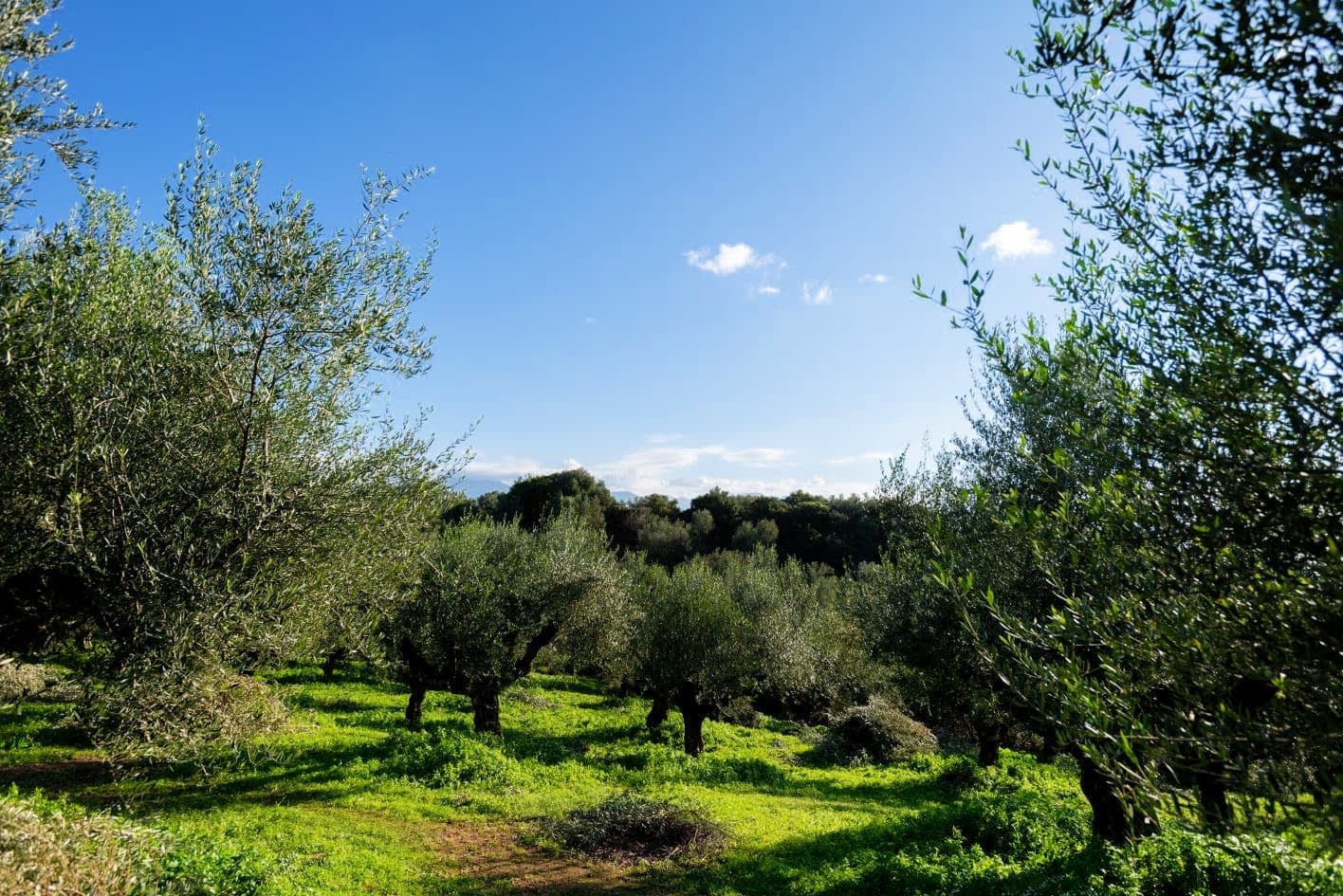
Savvas views climate change as the most significant challenge facing Greece’s centenarian olive groves. (Photo: Olivian Groves)
In keeping with its vision of producing award-winning olive oil sustainably, Olivian Groves has meticulously integrated its operations into the surrounding environment, ensuring they benefit the land and its people.
“We support the local community, provide jobs for the locals, prevent traditional orchards from being abandoned and forest fires from spreading, and we support the environment by having a negative carbon footprint,” Savvas said.
The company takes care of the trees year-round, knowing that a well-maintained grove mitigates the impacts of wildfires.
“Olive trees that are properly pruned create a natural barrier to fire because they are leafy plants that retain humidity,” she said. “Fire trucks can directly pump water from the water tanks we have constructed in our groves for irrigation purposes.”
Precision agriculture techniques have also been deployed, allowing the company to significantly reduce the water required to irrigate its trees.
“Meteorological data collection systems installed in our groves provide us with data regarding evapotranspiration and the amount of rainfall,” Savvas said. “This enables us to use the least amount of water possible to irrigate the trees. As a result, last year, the amount of water pumped was reduced by approximately 80 million liters.”
Olivian Groves also participates in pilot programs to track olive pests, such as the olive fruit fly, by collecting and analyzing data from monitoring traps to implement appropriate pest control measures.
The Peloponnesian producer has also gone the extra mile to accommodate the workers who harvest the olives each year, building an apartment complex in the company’s groves.
“We support the needs of our employees and their well-being,” Savvas said. “A recent example of this is the construction of new modern housing for our agricultural workers, providing them with living conditions that make us proud.”
During the 2023/24 crop year, Olivian Groves navigated the same challenges that have beset the global olive oil industry, from adverse weather to rising production costs and the scarcity of laborers.
“2023 was a difficult year,” Savvas confirmed. Our production volume was reduced, but fortunately, without harming quality.”
She added that the lack of workers was one of the biggest problems with Greece’s mechanism for sourcing laborers from third countries, such as Egypt, which provided a partial solution.
“However, bureaucratic inertia in the government agencies complicates the process and endangers olive cultivation,” Savvas said.
While the elevated production costs also posed a significant challenge to the company, Savvas noted that Olivian Groves’ most crucial concern is climate change, which has impacted almost every harvest in recent years.
“Potentially, the most important issue is the huge impact of climate change,” she said. “The last few years have seen warm winters, drought and severe weather phenomena such as floods and hail.”
“Consequently, we see the outbreak of diseases that create serious problems for the olive trees,” Savvas added. “Unfortunately, there are few and costly remedies that the producer can utilize to protect the crop.”
“Unless the leaders of all [olive oil-producing] countries implement meaningful measures, the future of our olive groves seems very bleak,” she continued.
As an export-oriented olive oil producer, Olivian Groves relies on quality to counterbalance any fluctuations in demand caused by unprecedentedly high global olive oil prices.
Savvas said that the rise in prices and the uncertainty associated with them have made it much harder to penetrate new markets and make new deals.
“Our weapons to overcome these obstacles are our high-quality standards,” she added. “Once consumers get to know our products, they will appreciate that we follow a balanced pricing policy that matches the high value of our brands by absorbing the sharp fluctuations in market prices.”
“But, most importantly, they will discover a different taste experience with our premium olive oil,” Savvas concluded.
Share this article


